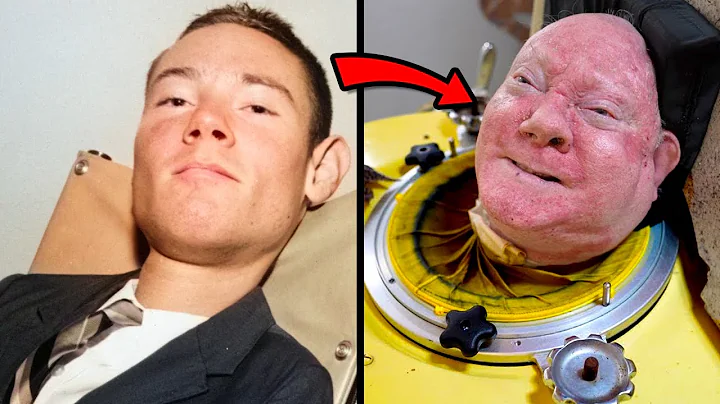On April 26, 1991, in a home in the United States, a trembling old man answered the phone: "If you can really come, I am very willing." After speaking, his eyes were filled with tears, and he sat down slowly, feeling I can't calm down for a long time. Only he knows how long he has been waiting for this day.
Who answered the phone? Who is he expecting to arrive?
He is well known to women and children.
Lu Zhengcao and Zhang Xueliang
Why are you looking forward to it? And why haven’t we seen each other for so many years? What does this meeting mean to both parties? What happened during this period?
Zhang Xueliang deserves to be remembered.
Mr. Qian Mu once said: "To study history, you must first understand people, especially a small number of historical figures. If you do not understand people and do not understand historical figures, you cannot study history." Republic of China The period was a time of turbulence and frequent wars. For the study of the ups and downs of this era, we can trace traces from a few historical figures and see how they made the right choices in the historical tide.
There is no doubt that Zhang Xueliang is one of these few historical figures.

Zhang Xueliang
Zhang Xueliang is better known to us in 1928 as "
Unyielding to the Suppression of Foreign Forces
In the 1920s, China faced internal and external troubles and was attacked from both sides. The Soviet Union and Japan took advantage of China's turbulent period and wanted to In the face of Japan's desire to monopolize the Northeast region of my country, "I Japan will support you and I will help you." " made it clear, Zhang Xueliang replied: "You always think a lot about me, but there is one thing you haven't thought about for me. I am a Chinese. "
Zhang Xueliang refused Japan's ill-intentioned help as a Chinese, did not succumb to the threats of evil forces, stood on China's standpoint, expressed his attitude for the national interests and the development of Northeast China, and fully demonstrated that in such a Noble integrity in an era of corrupt interests.

Care about the future of the Northeast.
From the death of Yuan Shikai in 1916 and the split of the Beiyang warlords to the "Northeast Rebellion" in 1928, the country was in turmoil and warlords of different factions fought. The people are in dire straits. Military expansion and the plunder of the Northeast by imperialist countries have put the Northeast's finances into trouble, affecting the economic balance of the Northeast and disturbing the people of the Northeast who want to live in peace.
Zhang Xueliang gave an in-depth analysis of the feasibility of the Northeast. After understanding the conditions for sexual development, he constructed a blueprint in his mind that was suitable for the development of the Northeast, could promote the growth of the Northeast, and was a long-term plan that could benefit all people's livelihood.
He was deeply aware of the physical and mental destruction of the people by feudal warlords. Unrestricted economic exploitation, therefore, he did not allow the shortcomings of the warlord government to continue. So he carefully selected administrative personnel, actively established regulations, strengthened military construction, reformed the currency system, etc.

Zhang Xueliang in his youth.
All of these are manifestations of Zhang Xueliang's unwillingness to lose or be weak in the Northeast. They are the efforts of a regional leader to care about people's livelihood and promote development.
Zhang Xueliang has dedicated his whole life to the Northeast and is patriotic. Loving the people deserves praise!
The Kuomintang government broke its promise and arrested Zhang Xueliang
I thought that Mr. Zhang Xueliang, who had paid so much for the country, would be praised and rewarded, but the Kuomintang government broke his promise and arrested him
after the "Double Twelve Incident". Zhang Xueliang was sentenced to and the sentence was: "Zhang Xueliang was the leader of the gang and violently coerced Shangguan. He was sentenced to 6 years in prison and Guo usurped public power for five years." Later, he was pardoned by Chiang Kai-shek and handed over to the Military Commission for "strict control." After Zhang Xueliang was detained, he lost contact with Lu Zhengcao and never saw each other again. So when he heard that it was Lu Zhengcao, he couldn't help but burst into tears when he was invited to return to China. Tears abound.
Zhang Xueliang was secretly transferred to Taiwan in 1946. He was finally freed in 1991, and settled in the United States in 1994. He died in 2001 at the age of 101. It is really ridiculous that a generation of patriotic generals fell to this level.

Zhang Xueliang's former residence
Zhang Xueliang's deep love for China was eventually responded to by the Communist Party of China. The CCP always remembers Zhang Xueliang's efforts in times of national crisis. Taking advantage of such an opportunity, Zhang Xueliang gradually let go of his grudge against Taiwan and once again opened his arms to the motherland.
So what made Zhang Xueliang make such changes? What secrets lie behind letting go of doubts?
The unparalleled love affair between Zhang Xueliang and Lu Zhengcao
"The evil son, the lonely minister, and the childish Confucianism filled up their great righteousness to fight against the powerful Hu;
How can the great achievements be due to respecting Ming Shuo and ensuring Taiwan's inclusion in the territory."
What do you think of when you first read this poem? Is it "This person is really loud. He wants to take over Taiwan from the very beginning. Is he really patriotic or is he just talking about it?" or "Why does he have the courage to do so while devaluing himself?" What about showing determination? "
But you won't think so after you know the author of this poem.
This poem is a message from the famous patriotic general Zhang Xueliang to his old friend Lu Zhengcao. It is a continued prayer for the peaceful reunification of the motherland and Taiwan, and a deep love for the motherland.
Lu Zhengcao watched Zhang Xueliang's thoughts quietly and kept them in his heart.
"You are a great Confucian who teaches martial arts and cultivates literature, and his eternal achievements are in the fight against Hu; I hope you will step out of the small world and enjoy the world and draw a new picture." is Lu Zhengcao's best value affirmation and recognition of Zhang Xueliang.

Shaoshuai Zhang in the film and television drama
Time will kill a lot of things, but the friendship between Lu Zhengcao and Zhang Xueliang has not dissipated with the passage of time, but has become more indestructible with the passage of time.
Lu Zhengcao went thousands of miles to defect to Zhang Xueliang
The relationship between Zhang Xueliang and Lu Zhengcao started in 1922 when Lu Zhengcao defected to the army and Zhang Xueliang.
Lu Zhengcao, who was born in a poor family, gave up school and joined the army after only four years of elementary school, and joined the then famous Zhang Xueliang. In the constant contact with Lu Zhengcao, Zhang Xueliang saw the passion in Lu Zhengcao's bones and the energy not to give in to fate.
On Zhang Xueliang's recommendation, Lu Zhengcao applied for the Northeast Martial Arts Lecture Hall. During this period, he studied hard and lived up to Zhang Xueliang's high expectations. After graduating in 1925, he returned to the army and was appointed by Zhang Xueliang as his major adjutant and secretary.

Lu Zhengcao is on his way to join the army.
How can Lu Zhengcao, who hates the tyranny of warlords wholeheartedly, be willing to only do civilian work? His goal is to go to the battlefield to kill the enemy and shed blood for the peace of Northeast China. So at his repeated request, he was sent to the 16th Brigade of the Northeast Army as Chief of Staff in 1933. 
Because like Zhang Xueliang, he was a peace lover and a patriot. They understood that under the domestic and international circumstances at that time, if China wanted to be independent and protect itself, it would not be enough to rely solely on one party. It must work together to defend itself against foreign enemies.
His idea did not appear overnight, but was formed after a long period of edification and continuous brewing. In the end, he understood Zhang Xueliang so well.
As early as 1934, Lu Zhengcao had frequent contacts with Liu Lanbo, Sun Zhiyuan and others, secret members of the CCP Beiping, and was further influenced by patriotic ideas. The seeds of cooperation must be planted in his heart to achieve peace. , this sprout gradually grew up and eventually grew into a towering tree.

Zhang Xueliang and Chiang Kai-shek took a photo
Lu Zhengcao carried the banner of protecting the family and the country
After Zhang Xueliang was placed under house arrest, the Northeast Army was leaderless and in chaos.
While Lu Zhengcao admired Zhang Xueliang, he also knew that he had to stand up. When he failed to save the young marshal, he had to take up the banner of protecting the Northeast. He could not live up to the expectations of the people in the Northeast, and he could not let the young marshal risk his life. The cooperation gained by making bets was in vain.
Therefore, he no longer served Chiang Kai-shek and transferred from the Kuomintang to the Communist Party. In October 1937, Lu Zhengcao led his troops to break away from the Kuomintang in the Central Hebei Plain of China and renamed themselves the "People's Self-Defense Forces" of China. He appointed himself as commander, and leadership positions at all levels were held by Communist Party members.

This army developed quickly. Under the leadership of Lu Zhengcao, it destroyed roads and demolished cities, transformed the plain terrain, and carried out flexible guerrilla tactics with the Japanese army.
Separated in a different place, never to see each other again
After hearing Lu Zhengcao's strange tactics and excellent results, Zhang Xueliang proudly called him "Ground Mouse" , and fully affirmed and recognized the path of joining the Communist Party.
Zhang Xueliang was 35 years old when he was placed under house arrest, and Lu Zhengcao was 31 years old. These two loyal men who once made lofty ideals and wanted to serve the country were separated by reality and never met again. Will
ever meet again? Zhang Xueliang wanted to know, and Lu Zhengcao also wanted to know.
The reunion that spans half a century
is ultimately a matter of destiny. We don’t want to chill the hearts of those who are covered with asphalt, and we don’t want those who are devout and patriotic to look forward to it any longer. After half a century of separation, they finally came together for the first time.

On March 10, 1991, Zhang Xueliang and his wife Zhao Yidi went to the United States to visit relatives. After learning the news, the central government decided to send Lu Zhengcao to visit Zhang Xueliang in the United States on behalf of the motherland in the name of a private friend. This provided an opportunity for Lu Zhengcao and Zhang Xueliang to meet again. Taking advantage of Zhang Xueliang's 91st birthday, the two began to have new expectations for this meeting that spanned half a century.
On May 29, 1991, a gray-haired old man stood at the door of his home, waiting for his old friend whom he had not seen for a long time. He was looking forward to it, excited, sighing, and longing for it.
came, and the two of them clasped their hands and had mixed feelings. Zhang Xueliang's favorite Peking Opera came from the
recorder. The two listened quietly, looking at each other but speechless, as if what they were listening to was not a drama, but every detail about each other over the years.

Zhang Xueliang and Zhao Yidi
This is the birthday gift brought by Lu Zhengcao to Zhang Xueliang. He knows that Zhang Xueliang likes comedy and still misses his motherland even when he is away.
The mellow Biluochun in the tea cup interrupted the two people's thoughts of reminiscing, and gradually brought their longing for each other back from the distance. At this time, they did not talk about the past, but only enjoyed the present. They are still the same people in , and they are no longer the same people in .
When they were together, they only thought about how to live for the people and fight for the country; now that they are in their twilight years, they just want to be safe and see each other more often.

The gift also included a birthday banner written by the famous calligrapher Qigong, with a small poem attached: is not afraid of death, does not love money, and her husband will never be pitied. A man who stands upright and lives upright and bright for the rest of his life.
After reading it, Zhang Xueliang smiled and said: "I am superstitious! Superstitious about God."
Lu Zhengcao replied: "I am also superstitious and believe in the people."

The two sides also talked about the tunnel warfare during the Anti-Japanese War and the Liberation War. , Zhang Xueliang praised Lu Zhengcao again, and Lu Zhengcao smiled and said: "It was invented by the people, and it was used to fight the devils! It is not all the credit of the people! Chiang Kai-shek, Song Meiling all believe in God, eight Millions of troops were defeated by us and finally went to Taiwan."
Hearing this, Zhang Xueliang said affectionately: "Those who win the people will prosper! "
Zhang Xueliang and Mrs. Bei have been friends for many years, and they have a deep relationship. He single-handedly organized Zhang Xueliang's birthday party, and the two met at Mrs. Bei's home. It can be said that this meeting between the two people took great effort and a lot of efforts were made for the two people to meet again.

Zhang Xuehao's friend Mrs. Bei
They met late and had endless things to say. Before they knew it, it was already noon. Mrs. Bei had already ordered meals in advance and invited everyone to dine at the "China Garden Restaurant" downstairs. Zhang Xueliang and Lu Zhengcao chatted while eating, talking about the past and the future.
Zhang Xueliang asked Lu Zhengcao where he went to Zhou Enlai later. Lu Zhengcao said that the situation was urgent, so he accepted the instructions of the Communist Party and stayed in Jizhong and began the anti-Japanese struggle. In May 1937, he was secretly accepted as a member of the Chinese Communist Party.
After hearing this, Zhang Xueliang said with deep emotion: "This is the right way to go!"
He said it to Lu Zhengcao, but also to himself. Speaking to Lu Zhengcao was an affirmation of his joining the CCP and galloping into the battlefield. I told myself that I regretted not being able to persist in resisting Japan.
The happy time is always short-lived, and this meeting came to an end soon. But for them, they were far from finished saying what they wanted to say, and there were still many questions they wanted to ask each other, so the two made an appointment to meet again the next day.

A tense second meeting
html On May 30, Zhang Xueliang and Lu Zhengcao met for the second time in the office of the general manager of Swiss Bank in Manhattan. There were only two people present at this meeting, which was a real secret meeting. Lu Zhengcao immediately stated the main purpose of his visit: he sincerely welcomes Zhang Xueliang to return to his hometown at his convenience.Lu Zhengcao took out the letter written by Deng Yingchao at the request of Deng Xiaoping. This letter carries the hopes of the Chinese people and the aspirations of countless patriotic Taiwanese compatriots.
Taking this letter, Zhang Xueliang read and read it again and again. Why doesn't he want to go back to the Northeast? Why doesn't he want to go back to the home where he has lived for decades?
But he knows that he cannot be reckless and impulsive. He is not alone, and he cannot be alone.
Finally, after thinking for a long time, he said: "I will write a reply to Deng Yingchao. I can't go back directly from the United States this time. I have to go back to Taiwan to get Lee Teng-hui's consent first, and then determine the specific schedule for my return."

In a few words, It reveals Zhang Xueliang's concern for the motherland and his expectations for the people, but what can he do? Nothing can be changed for the time being.
After the two meetings, both parties still had some unfinished business, so they made an appointment to meet again in a few days.
The last face of the two generals
html On June 4, Zhang Xueliang and Li Zhengcao met for the third time at the villa of Li Daoyu, the Chinese ambassador to the United Nations .
Lu Zhengcao sincerely asked : "Is it possible to return to the mainland? The mainland is not like Taiwan."
Zhang Xueliang said: "I am willing to go back and have a look. I am living in Taiwan. If Lee Teng-hui does not object, I will go back to the mainland. "
I have been away from my hometown for half a century, but I still miss it and don't want to go back.
Later, Zhang Xueliang said: "You can't be special to me, so I hope you won't hold a welcome ceremony or compliment me. Just sit down and have a good talk. That's good."
Hearing this, Lu Zhengcao He patted his chest and said, "Don't worry, there is no such thing."

The most important thing about this conversation is the mainland's attitude towards Taiwan. This has always been the most concerning thing for both sides. In Zhang Xueliang's previous poem to Lu Zhengcao The idea of "ensuring Taiwan's inclusion in the territory" was also clearly mentioned. He also expressed his opposition to "Taiwan independence", his firm stance on the peaceful reunification of the motherland, and his willingness to contribute his share to the motherland. Lu Zhengcao also conveyed to Zhang Xueliang that the motherland would not give up the use of force for reunification.
At this time, the two people are representatives of two different forces. Although their positions are different, they have the same wish: they hope for the peaceful reunification of the motherland and the prosperity of the country. At this moment, they are on the same line again...
But unfortunately, Zhang Xueliang passed away before returning to his hometown. This beautiful long-cherished wish must be fulfilled by the next generation.





















